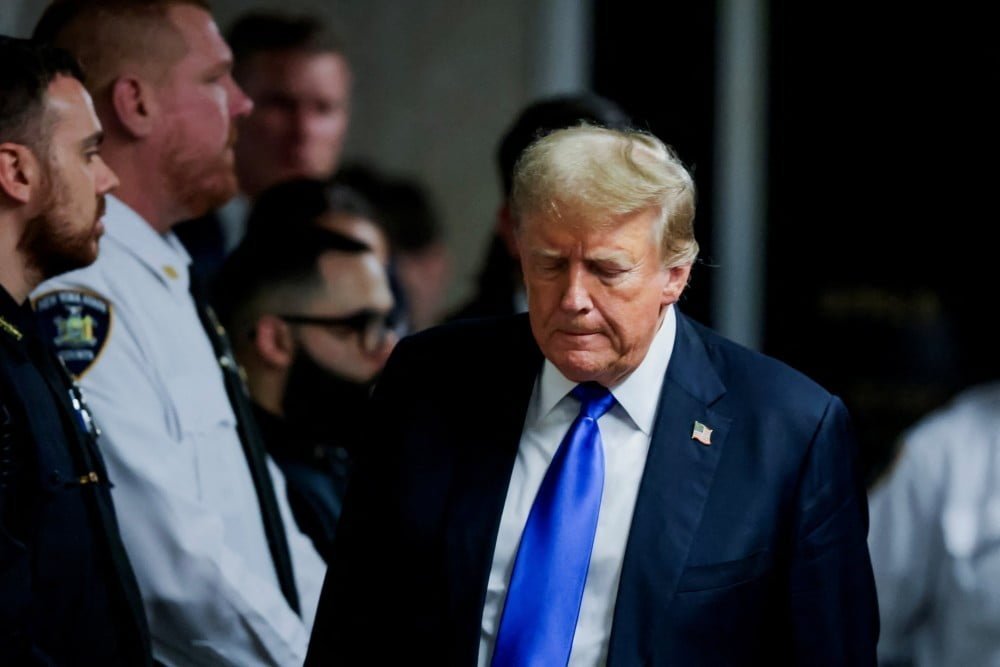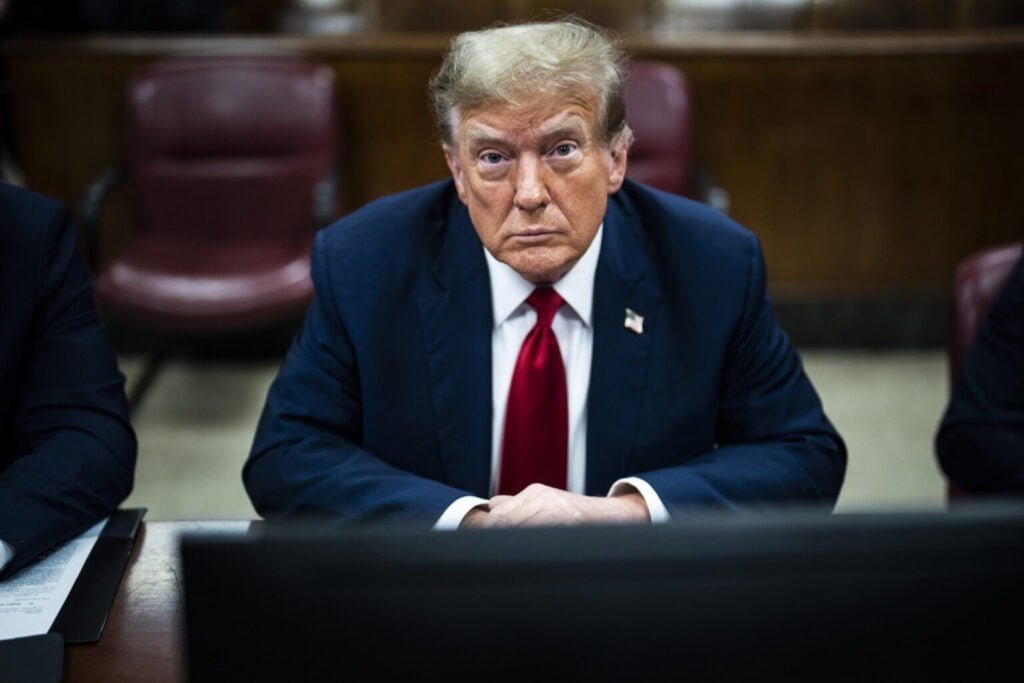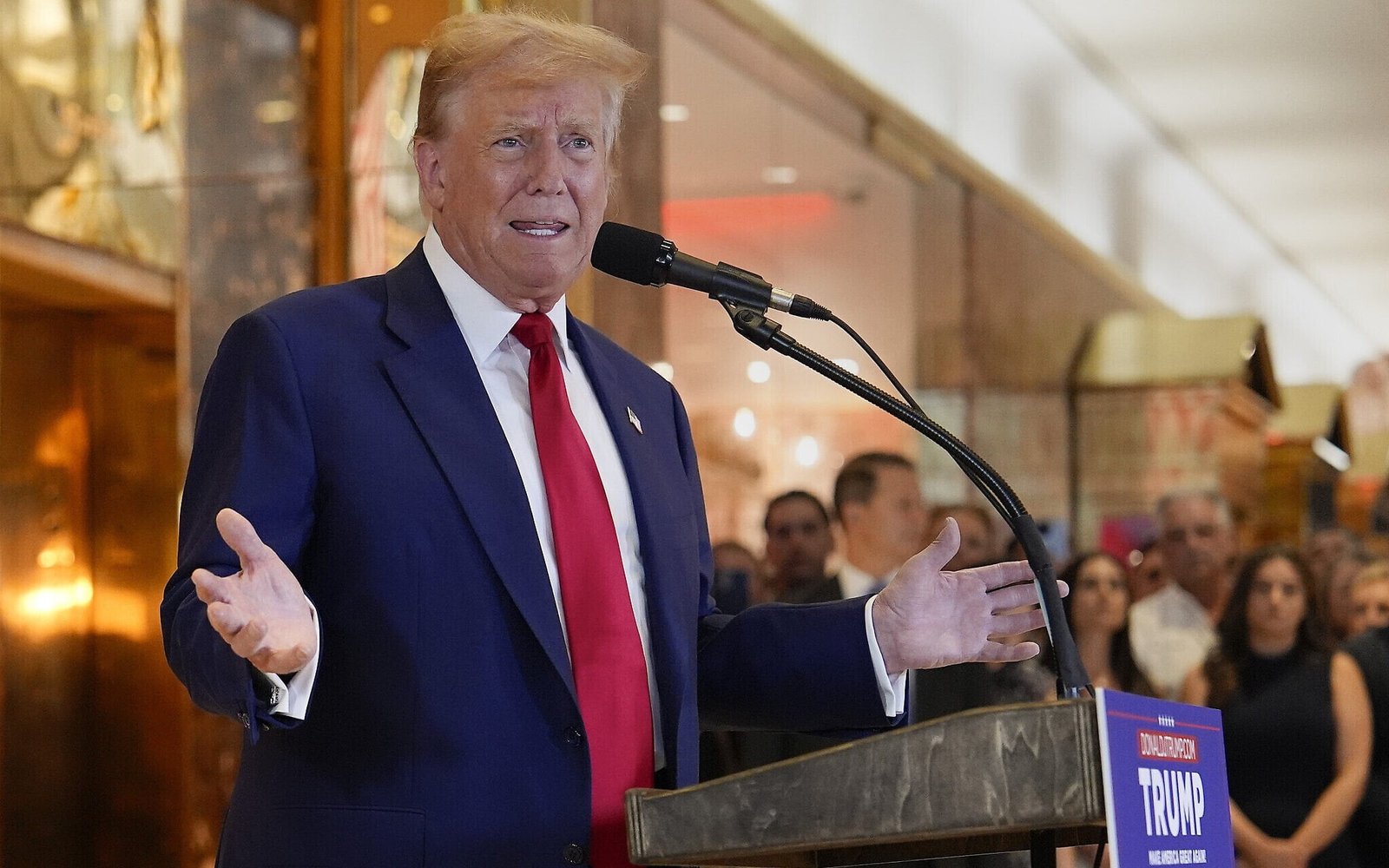You’ve probably heard about the Lakota tribe’s petition to ban Trump from their reservation. As a Lakota man, you feel strongly that Trump shouldn’t be allowed near your people. Especially since he’s a convicted felon. You took to Twitter, asking who supports banning Trump from the reservation. Reactions poured in from all sides. Some cheered your stance against Trump, while others accused you of overreacting. But you’re standing firm. Having a non-Native convicted felon around Lakota kids is a risk you refuse to take. Read on to learn more about the controversial push to make the reservation a Trump-free zone.
Lakota Nation Petitions to Ban Trump From Reservation
As soon as the Lakota tribe heard Trump planned to visit, they sprang into action. A petition began circulating to ban the former president from stepping foot on their sovereign land. For generations, the Lakota people have viewed U.S. presidents as hostile to Native rights and interests. Trump’s policies and rhetoric only reinforced this view. ###A History of Broken Promises The U.S. government has a long history of breaking promises and exploiting the Lakota. From seizing their sacred Black Hills to violently suppressing the Ghost Dance religion, the Lakota have endured immense suffering at the hands of the federal government.
Trump’s Policies Targeted Natives
During his time in office, Trump pursued policies detrimental to Indigenous groups. He shrank Bears Ears National Monument, opening sacred lands to mining and drilling. The Keystone XL pipeline was set to cut through Lakota territory, threatening their water and way of life.
Activists Protest Visit
When Trump’s team announced his reservation visit, Native activists were outraged. They saw it as further exploitation and a publicity stunt to win over moderates. Protesters gathered with signs saying “Trump Not Welcome” and “Protect the Sacred.” They worried his presence would embolden racism against Natives.
Ban Would Affirm Sovereignty
Banning Trump would be an assertion of Lakota sovereignty, showing they control who enters their lands. While Trump likely sees the trip as a chance to brag about “helping” Natives, the Lakota want nothing to do with someone who has repeatedly disrespected their people. For them, this ban is about protecting culture, land, and identity in a way U.S. politicians have failed to do.
The Lakota tribe has endured immense hardship, but they remain resilient. Banning the man who sought to exploit them yet again would be an act of defiance and self-determination. For the Lakota, Trump’s conviction brings hope that their calls to protect the sacred will finally be heard.
Trump a Convicted Felon After NY Tax Fraud Case

Donald Trump’s legal troubles finally caught up to him. After years of evading consequences for his actions, a New York jury found the former president guilty of falsifying business records and tax fraud relating to hush money payments made to two women during the 2016 election. The verdict came as a shock to Trump and his supporters, who believed he was untouchable.
For the first time, Trump faced real punishment for his criminal behavior. In addition to hefty fines, the judge barred him from holding public office again. Trump’s reaction was predictable – he railed against the “rigged witch hunt” on social media and pledged to appeal, claiming his “unfair” treatment was all part of a political vendetta against him. His devoted followers agreed, insisting Trump could do no wrong.
But the facts were clear. Prosecutors presented irrefutable evidence that Trump illegally diverted funds from his charity to pay off Stormy Daniels and Karen McDougal, then attempted to cover it up. ###His CFO Allen Weisselberg, who pleaded guilty to tax fraud in exchange for testifying against Trump, detailed exactly how the Trump Organization cooked the books to hide the payments and avoid taxes.
With the felony conviction, Trump’s days of avoiding consequences are over. ###No longer will he be able to shrug off scandals and illegal behavior. His political future is in tatters. His business empire faces ruin. For a man obsessed with winning and his own self-interest, this defeat may be the hardest to overcome.
Still, Trump remains defiant. He continues to claim victimhood while raising funds for his “legal defense fund” and hyping the possibility of a 2024 presidential run to keep supporters engaged. ###Whether he actually follows through is uncertain. But one thing is clear – Donald Trump’s corrupt reign over politics has come to an end, and justice has finally been served. America can now begin the process of healing from his disastrous time in office.
Native Americans Reject Trump’s Damaging Policies

As president, Donald Trump pursued policies that threatened Native American tribes and sovereignty. His administration challenged Native Americans’ standing by suggesting they didn’t deserve healthcare without jobs. At the same time, Trump’s failed response to COVID-19 left tribes behind, endangering lives.
Broken Promises
Trump vowed to honor treaties with tribes during his campaign but broke that promise once in office. He slashed funds for the Bureau of Indian Affairs and Indian Health Service, jeopardizing healthcare, education, and self-governance. Trump also opened tribal lands to mining and pipeline projects, ignoring protests.
Pandemic Failure
Native communities were especially vulnerable during the pandemic due to underfunded health systems and multi-generational housing. However, Trump’s haphazard response offered little help. His administration failed to deliver tests and PPE, and tribes had to shut borders to avoid outbreaks. Many lives were lost due to neglect and empty promises.
Time for Change
After four damaging years, tribes hoped for change. President Biden promised to strengthen the nation-to-nation relationship, increase funding, and combat COVID-19. His administration delivered vaccines, tests, and aid to tribes, signaling a new era of partnership. However, lasting harm was done, and trust must be rebuilt.
Banning Trump from tribal lands is a small step toward restoring dignity. His damaging policies and rhetoric have no place in Native communities working to heal and safeguard their future. Tribes deserve leaders who honor treaties, value lives, and protect sovereignty–not those who make empty promises and leave vulnerability in their wake. The Lakota are right to reject a leader who failed them when they needed help the most.
Tribal Sovereignty Allows Banning Unwanted Visitors
Tribal sovereignty gives Native American tribes the right to govern themselves and control what happens on their land. This includes the authority to decide who is welcome on tribal territory. As sovereign nations, tribes can pass laws to ban unwanted visitors from their lands in order to protect their community.
The Department of the Interior recognizes and upholds the sovereign rights of tribes. Tribes have used this sovereignty to assert more control over their lands by restricting access. For example, several tribes have banned fracking and other harmful environmental practices. Banning unwanted visitors, especially those with a criminal history, is well within a tribe’s sovereign rights.
Protecting Lakota Children
As a sovereign nation, the Lakota tribe has the right to pass laws protecting their community, including Lakota children. Banning a convicted felon, especially one accused of harming children, from tribal lands would be a lawful exercise of Lakota sovereignty. Keeping a controversial public figure with a criminal record away from Lakota children seems a reasonable action for any sovereign tribe focused on the wellbeing of its youngest citizens.
No tribe is obligated to allow anyone onto their territory, especially those who may pose a threat. Banning unwanted visitors is an assertion of sovereignty that empowers tribes to shield their community. The Department of the Interior should support the Lakota tribe fully if they choose to exercise their lawful sovereign rights in this way. Protecting Lakota children by banning a convicted felon from their lands would be a courageous act of self-governance.
Overall, tribal sovereignty gives the Lakota tribe the authority to decide who can access their territory. Banning unwanted visitors with a criminal history is well within their rights as a sovereign nation seeking to safeguard their community. Protecting Lakota children in this way would be an inspiring example of tribal self-governance.
Lakota Say No to Trump – Convicted Felon Not Welcome
The Native Lakota people have made it clear that Donald Trump, now a convicted felon, is not welcome on their sovereign tribal lands. As the first US president to be found guilty of criminal offenses while in office, Trump represents values that go against Lakota principles.
Protecting Lakota Values
The Lakota people have fought tirelessly to maintain their cultural identity and independence. Allowing a figure like Trump, who disregards laws and spreads misinformation, onto Lakota territory would undermine these efforts. Lakota leaders aim to shield the youth from Trump’s harmful rhetoric and set an example that even the most powerful can face consequences for wrongdoing.
Upholding Tribal Sovereignty
As a sovereign nation, the Lakota tribe has the right to determine who enters their lands. By banning Trump, the Lakota government is exercising its legal authority as an independent political body. Some critics argue that banning any US citizen is undemocratic, but the Lakota’s decision is well within their rights. The US-Lakota treaties of 1851 and 1868 established the tribe’s territorial boundaries and right to self-governance.
Seeking Justice and Accountability
For too long, marginalized groups like Native Americans have faced injustice without recourse. The guilty verdict against Trump shows that even the privileged and powerful can be held accountable under the law. Lakota leaders want to build on this momentum by taking a stand against criminality and corruption. Banning Trump sends the message that Lakota lands will not provide safe haven for those who violate laws and public trust.
The Lakota people have endured a long, difficult history of oppression and human rights violations. By prohibiting Donald Trump from entering their territory, the Lakota are defending the democratic values of justice, integrity and human dignity that the US was founded on. Their stance gives hope that moral courage and truth will prevail against the forces that threaten them.
Conclusion
So at the end of the day, this whole Trump situation shows just how divided things have become. We’ve got to find a way to come together as people, set aside our differences, and work towards healing. The back and forth will only drive the wedge deeper. If we’re going to move forward, it has to be side by side.
Let’s take a step back, see each other’s humanity, and start building bridges instead of walls. We may not agree on everything, but if we open our minds and our hearts, progress is possible. The time for change starts now, with each of us. Together, we can create the world we all want to live in.






















